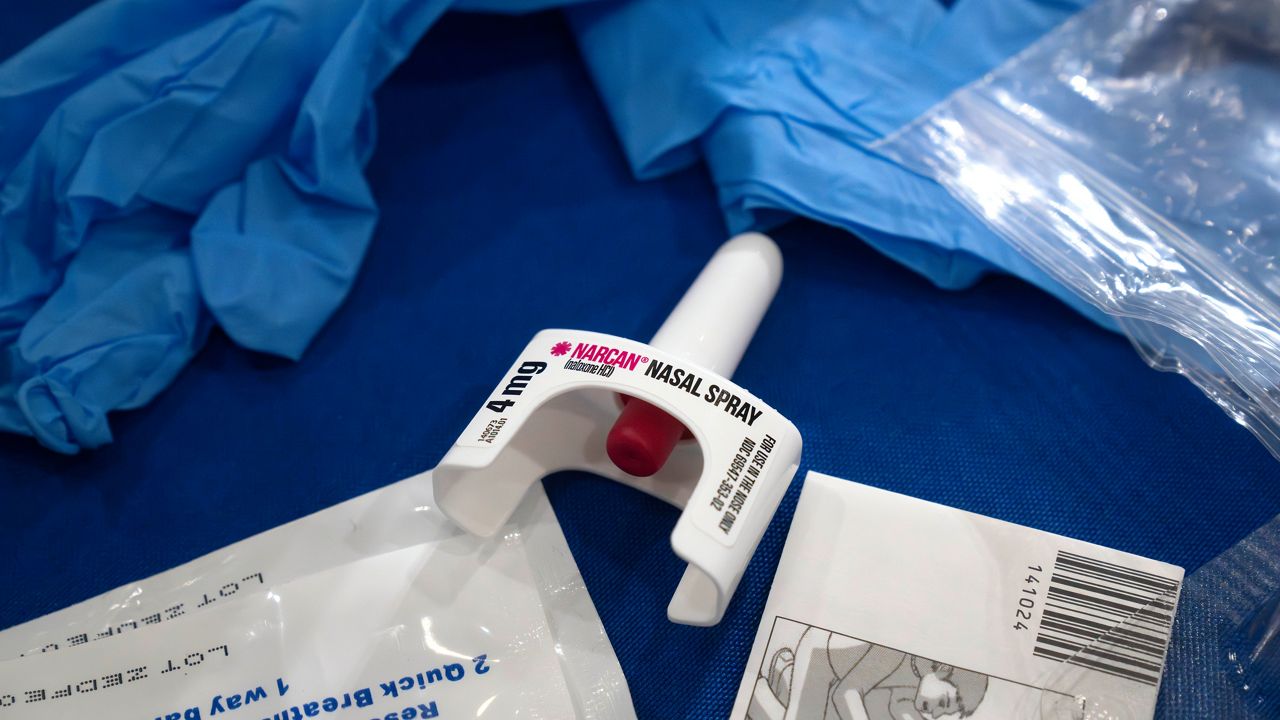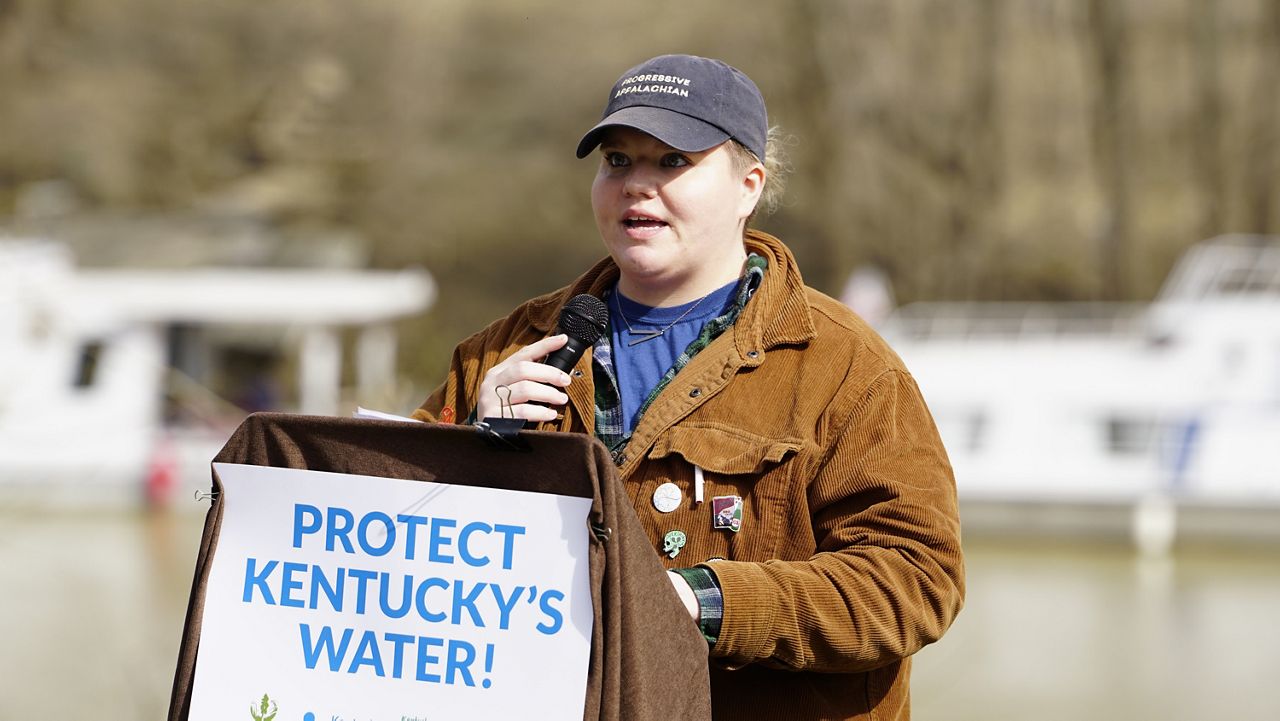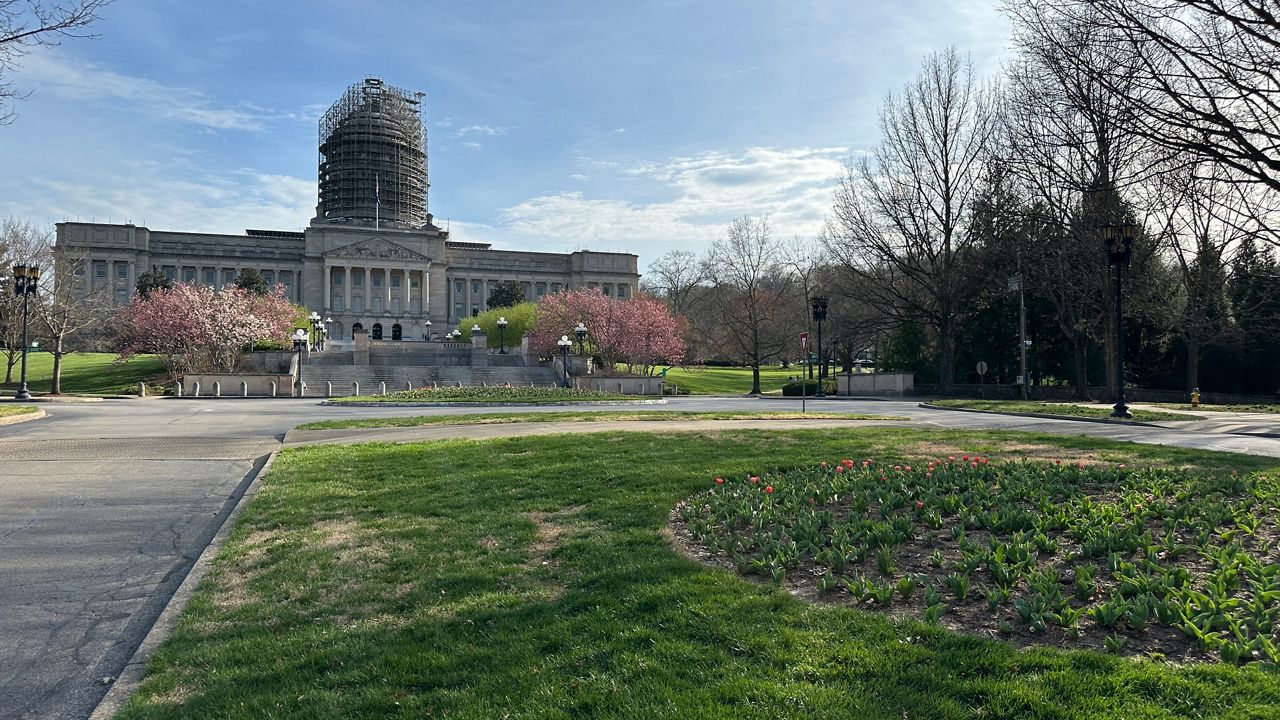FRANKFORT, Ky. — The Kentucky General Assmebly will not return for business until Friday April, 12, as they await actions from Gov. Andy Beshear, D-Ky., during the 10-day veto period. Saturday will be day two of that period.
Prior to the veto period, the Kentucky General Assembly approved a slew of priority legislation over two long nights this past week. Bills ranged from the state’s biennium budget, anti-crime measures and vapes and e-cigs in schools.
It took 58 legislative days, but both chambers have finally agreed and passed the state’s two primary budget bills; House Bill 1 and House Bill 6. Both bills passed the House Thursday and were delivered to the governor’s desk for action.
HB 6 as amended by a free conference committee report is the state’s operating budget for 2024-2026. It totals $102 billion and includes increases to the K-12 SEEK formula, tier 1 funding and transportation funding, but does not address teacher raises. Wednesday night, the funding bill passed the Senate before passing the House a night later.
State Representative and House budget chair Jason Petrie, R-Elkton, said local districts would have to address a bump in teacher pay themselves because the SEEK formula is constitutionally set.
“Districts are encouraged to make sure that they’re addressing the needs of their districts including their personnel and all of the other things that they have to account for,” Petrie said.
HB 1 is $2.7 billion for onetime expenses over the two-year period. Its funding will come from the state’s rainy-day fund, which currently sits at its highest balance in state history. Some of it will be used on wastewater projects throughout the state, $100 million downtown Louisville revitalization and $10 million for affordable housing projects in Lexington.
“This bill reflects a long period of intense discipline by the members of this body and the members of the House,” said Senate budget chair Chris McDaniel, R-Ryland Heights.
Also on Thursday, the House gave final passage to House Bill 5 known as the Safer Kentucky Act as amended by the Senate. The omnibus anti-crime bill calls for an automatic life sentence after three violent crime convictions, creates a statewide carjacking statute and makes homeless street camping a criminal offense.
HB 5 now heads to Beshear for action. Democrats have been strongly against the bill since its introduction.
“In our budget year, this policy does not correlate with our budget priorities, and we are setting up our corrections officers to do more with less,” said State Rep. Rachel Roarx, D-Louisville.
Earlier this week, the Senate passed House Bill 159 unanimously. It protects health care workers from being criminally charged for medical mistakes. State Sen. Cassie Chambers Armstrong, D-Louisville, and other senators believe the broad language would protect providers of in-vitro fertilization in Kentucky.
“I would prefer that we actually passed a law explicitly addressing IVF just to make sure that there is no uncertainty at all. But in the absence of that, I do think that people who are working in the IVF space should feel reassured that they have some protection under this new law,” Armstrong said.
The House passed the bill unanimously last month. It now is awaiting action from the governor.
Other major bills passed this past week:
- House Bill 11-creates rules on what vape and e-cig products can be sold in KY
- House Bill 535-expands civics education in high schools
- House Bill 622-would switch U.S. Senator vacancy from gubernatorial appointment to a special election
- Senate Bill 2-putting optional armed 'Kentucky Guardians' in schools
- Senate Bill 20-would expand violent offender definition, change how violent juveniles are tried
- Senate Bill 50-allows craft distillers to self-distribute up to 5,000 gals of product a year
Some bills that failed to get passed before the veto period include:
- House Bill 255-originally loosened teen labor law, amended with WKYSafe fund amendment in Senate
- House Bill 367-increase eligibility requirements for SNAP benefits
- Senate Bill 203-invest $300 million into pre-k education; the sponsor has declared this officially dead
- Senate Bill 6-anti-DEI legislation, amended in the House with stronger language
HB 255, HB 367 and SB 6 are likely dead as Beshear would most likely veto them, if passed after the veto period. If the governor vetoes a bill after the veto period, the General Assembly cannot overturn it.
Anything passed this past week or prior to that ends up getting vetoed CAN be overruled by the approval of both chambers.










